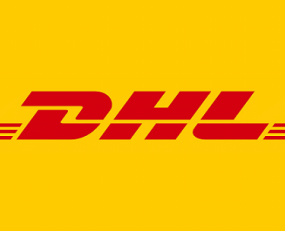
DHL Express has purchased the first 100 Fiat E-Educato vans as part of their plans to electrify 60% of their fleet by 2030. The large vans are entirely electric with a range of over 200km, making them well-suited for last-mile delivery. This announcement is in line with the DPDHL Group’s Sustainability Roadmap, with plans for DHL Express to have more than 14,000 electric vans in operation by 2030.
Alberto Nobis, CEO of DHL Express Europe, had this to say, “We strongly believe that the future of last-mile logistics is electric. To fulfil our purpose of connecting people and improving lives, we have committed to getting greener and cleaner in what we do every single day. By adding the E-Ducatos to our fleet, we take the next important step to reach our goal of electrifying the major part of our last-mile delivery fleet.”
DHL Express connects consumers and businesses in more than 60 countries and territories across Europe, relying on a pickup and delivery fleet that consists of around 500 electric vans which primarily operate in urban regions, and 14,000 non-electric vehicles. Due to the high customer demand for international Express deliveries, the company expects its European last-mile fleet to grow to approximately 20,000 vans by 2030. To transform its sustainability strategy into reality, the company is strongly committed that 60% of its fleet operate electric by end of the current decade.
The electrification of last-mile logistics is one of the main pillars of DPDHL Group’s Sustainability Roadmap. The Group is investing a total of €7bn (Opex and Capex) by 2030 in measures to reduce its CO2 emissions. In addition to the electrification of the vehicles, the funds will go in particular towards sustainable aviation fuels and climate-neutral buildings, helping the company on the way to its target for zero emissions by 2050.
For DHL Express the strategic partnership with Fiat represents the next evolution to deliver shipments without any CO2 emissions to its customers. The company is also using cargo bikes in urban areas such as Barcelona, Copenhagen, Frankfurt am Main. It is also connecting its distribution facilities in the city centres of London and Amsterdam via boat to reduce inner-city traffic volume and CO2 emissions.
In addition to the vehicles, a totally electric mobility chain needs comprehensive area-wide charging infrastructure. To enable a further expansion of its charging network DHL Express is currently working in collaboration with several specialized companies on a roadmap to significantly increase the number of charging points across Europe within the next years.
Source: DPDHL